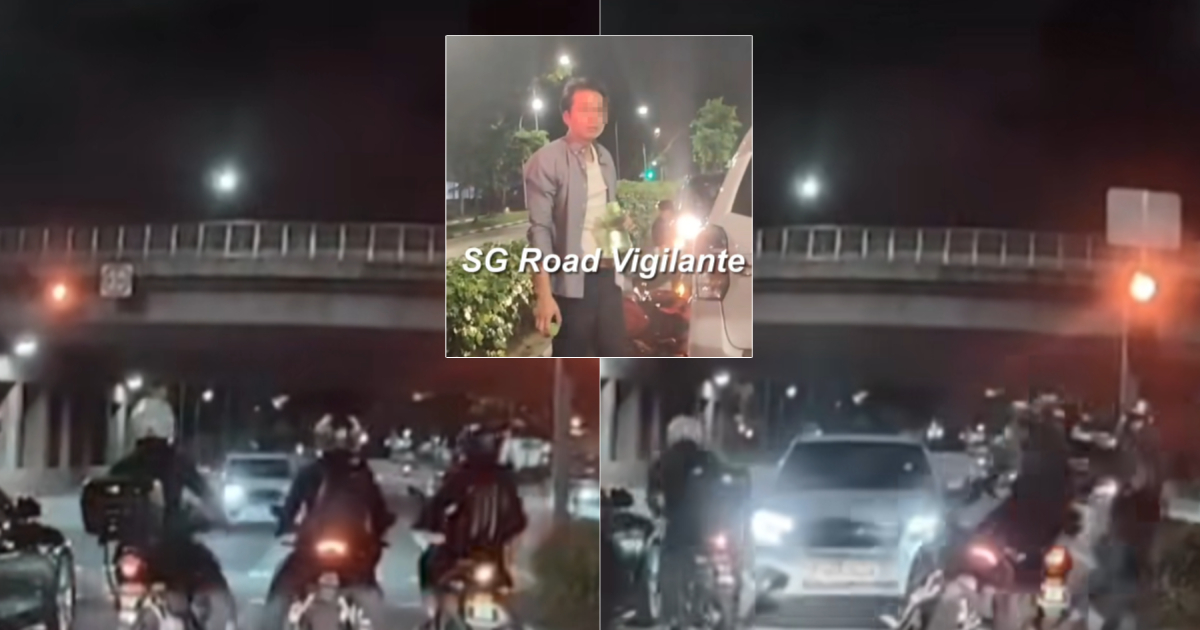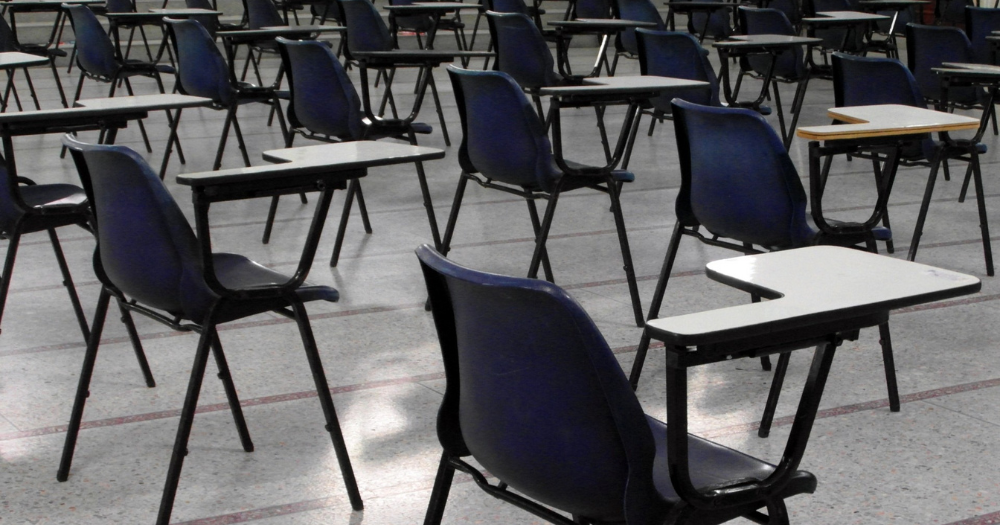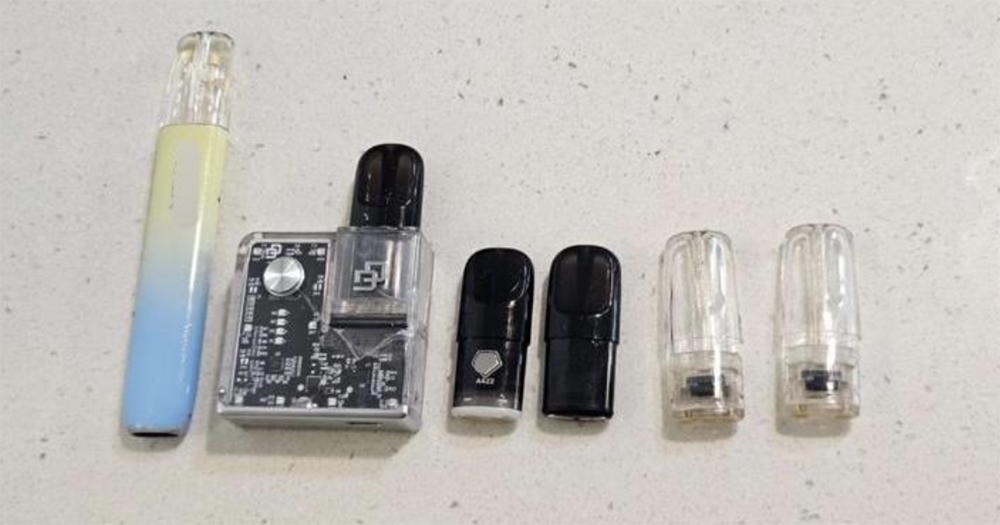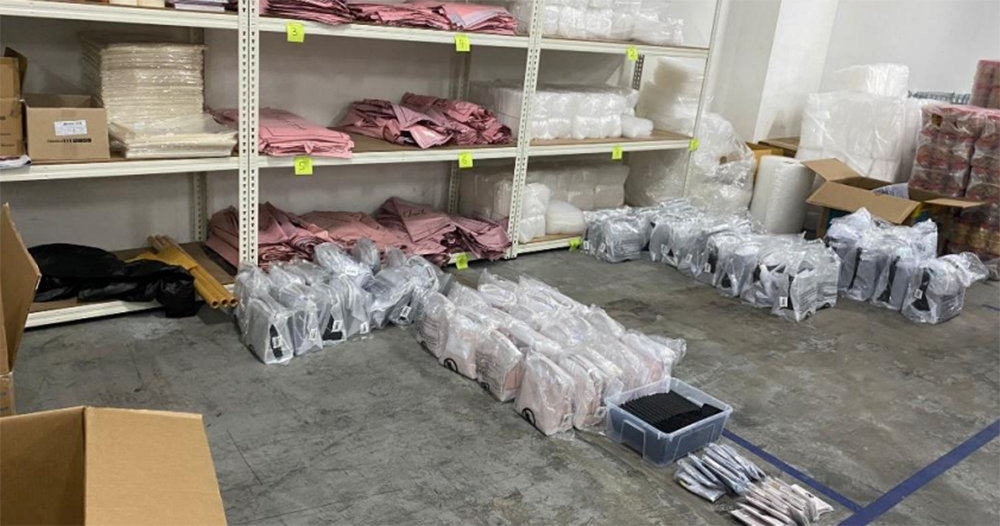Teen, 17, detained over plans to stab non-Muslim men at Tampines neighbourhood centre & join ISIS in Syria
He has been detained for two years.

Radicalised by online materials, a 17-year-old teenager made plans to stab non-Muslim men during the school holidays and die as a martyr.
The Singaporean was first exposed to foreign radicalist teachings in August 2023, and was subsequently radicalised himself.
He later planned a suicide knife attack near Tampines West Community Centre during the September school holidays, and even practised stabbing motions with a pair of scissors.
He was arrested in August 2024 — less than a month before the planned attack.
Addressing the media in an Oct. 18 doorstop, law and home affairs minister K Shanmugam called it "a very close shave".
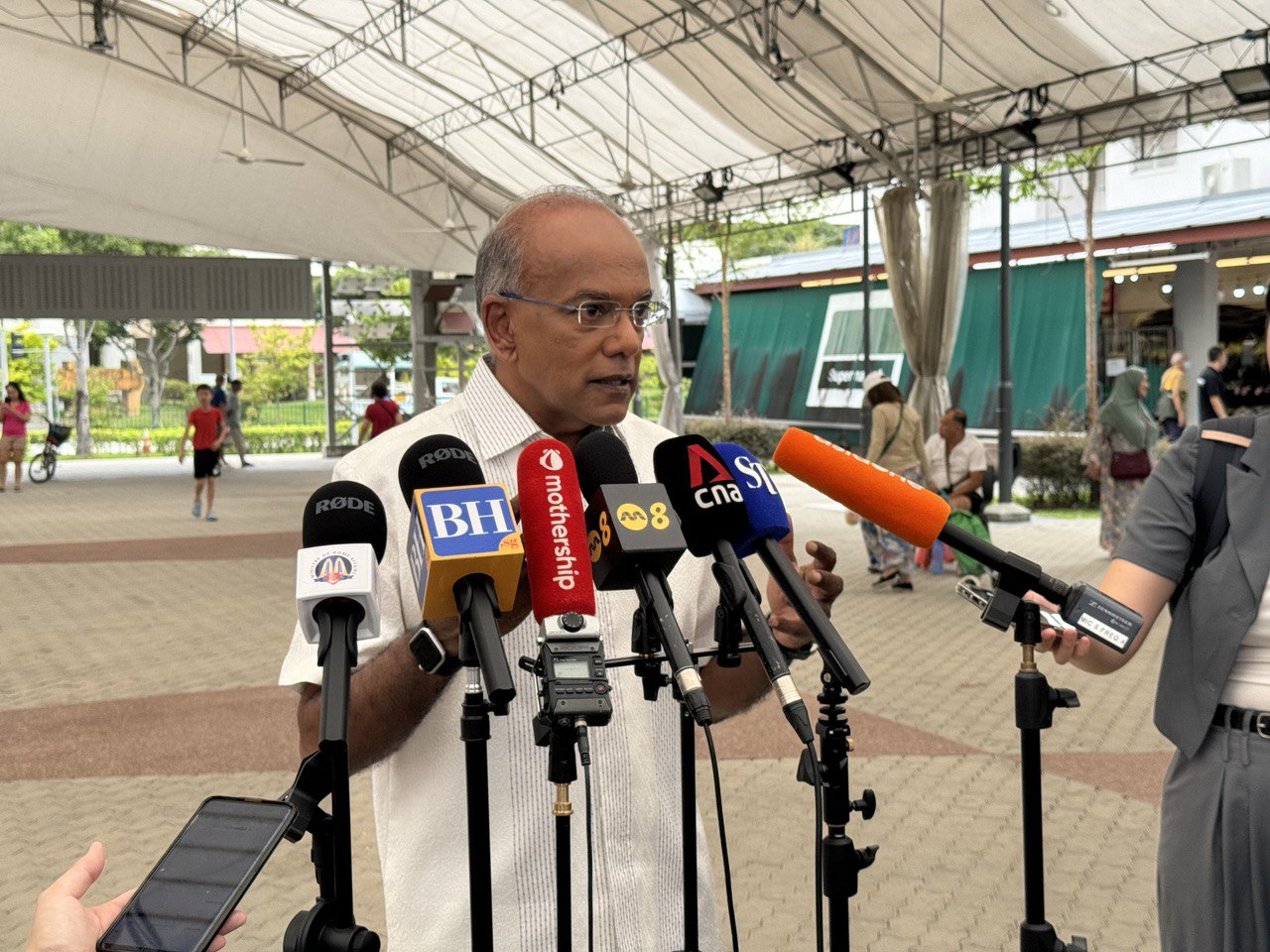 Photo by Ilyda Chua.
Photo by Ilyda Chua.
"This boy had made extensive plans and preparations, and he was determined to carry out his attack in Singapore," he told reporters, speaking near the site of the planned attack in Tampines.
"Literally thousands of people go through here every day. School holidays, it would be even more crowded...it is very fortunate that ISD (Internal Security Department) arrested him in time."
Radicalisation
ISD said that the teen had been searching for religious knowledge online when he came across the teachings of foreign radical preachers, including pro-ISIS material.
He began subscribing to segregationist religious beliefs — for instance, that Muslims should not extend festive greetings to non-Muslims — and joined various online groups which provided updates on ISIS activities.
By January 2024, the teen had become a staunch ISIS supporter. He bought into ISIS’s rhetoric of promoting armed violence to establish an Islamic state, and aspired to die as a martyr while fighting for the group.
He also took a bai’ah (pledge of allegiance) to ISIS in his room in May 2024, and regarded himself as an ISIS member.
Though his parents knew he was watching videos of foreign preachers and advised him not to do so, he disregarded their advice.
Instead, he tried to conceal his radical activities, such as using codewords and virtual private networks (VPNs) when surfing radical websites.
ISD noted that following Hamas’ Oct. 7, 2023 attacks, there was a surge in online extremist materials by ISIS and other terrorist groups that sought to capitalise on the conflict to peddle violent narratives.
"Extremist narratives — they're everywhere, relating to developments overseas," Shanmugam said.
"The 17-year-old’s case shows how terrorist groups, including those like ISIS, which are not directly involved with the Israel-HAMAS conflict, can and will take advantage of the conflict to recruit and radicalise others."
Planned attacks
After taking the bai’ah, the teen began planning to attack non-Muslim males in Singapore, believing that he had to obey ISIS’s incitement for its followers to kill non-Muslims.
He decided to conduct a suicide knife attack — inspired by ISIS propaganda — at the HDB heartlands near Tampines West Community Centre, specifically between Blocks 826 and 828 at Tampines Street 81.
He chose this location due to its high footfall, and because it was near his home.
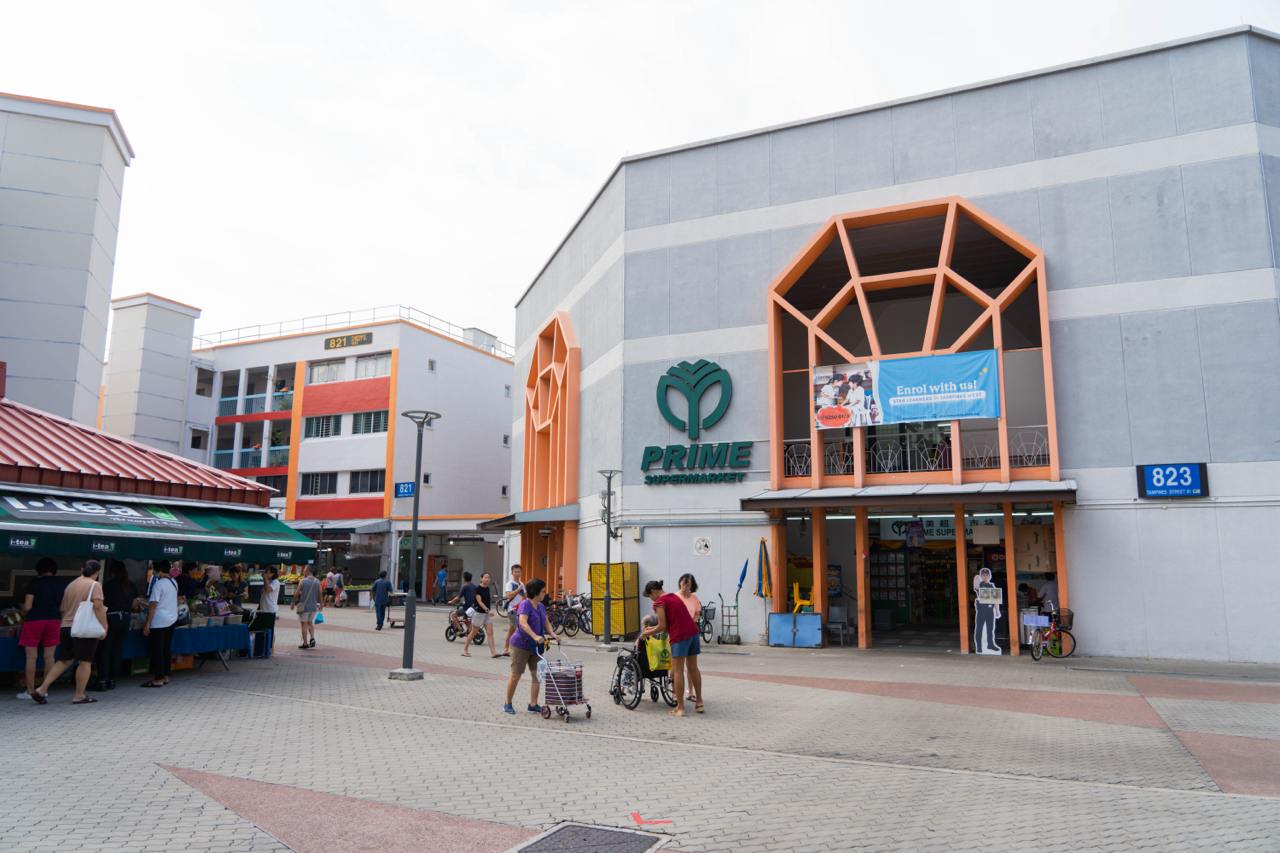 Photo by Kristelynn Lim
Photo by Kristelynn Lim
A supermarket, multiple coffeeshops, and a primary school are also located in the vicinity.
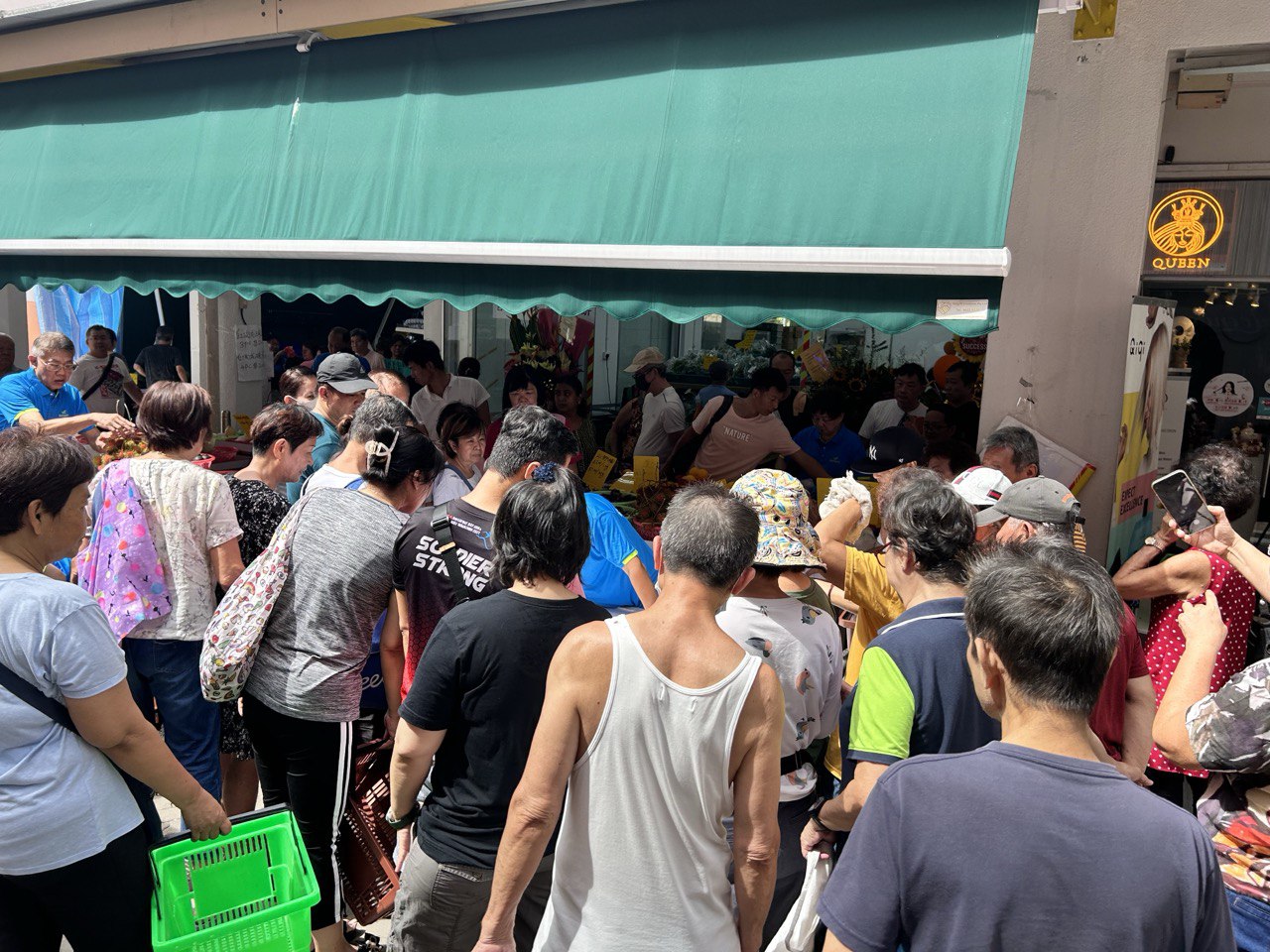 A weekend crowd at Block 826, Tampines Street 81. Photo by Nigel Chua
A weekend crowd at Block 826, Tampines Street 81. Photo by Nigel Chua
The teen noted that it would be the first terrorist attack in Singapore in recent decades if successful, which he felt “a sense of pride” about.
To conduct the attack, he planned to stab his victims in the neck with either a Tefal kitchen knife or a pair of scissors taken from his home.
He practised stabbing motions using different grips with the scissors, and conducted a walkthrough in June 2024 of the route he would take for the attack.
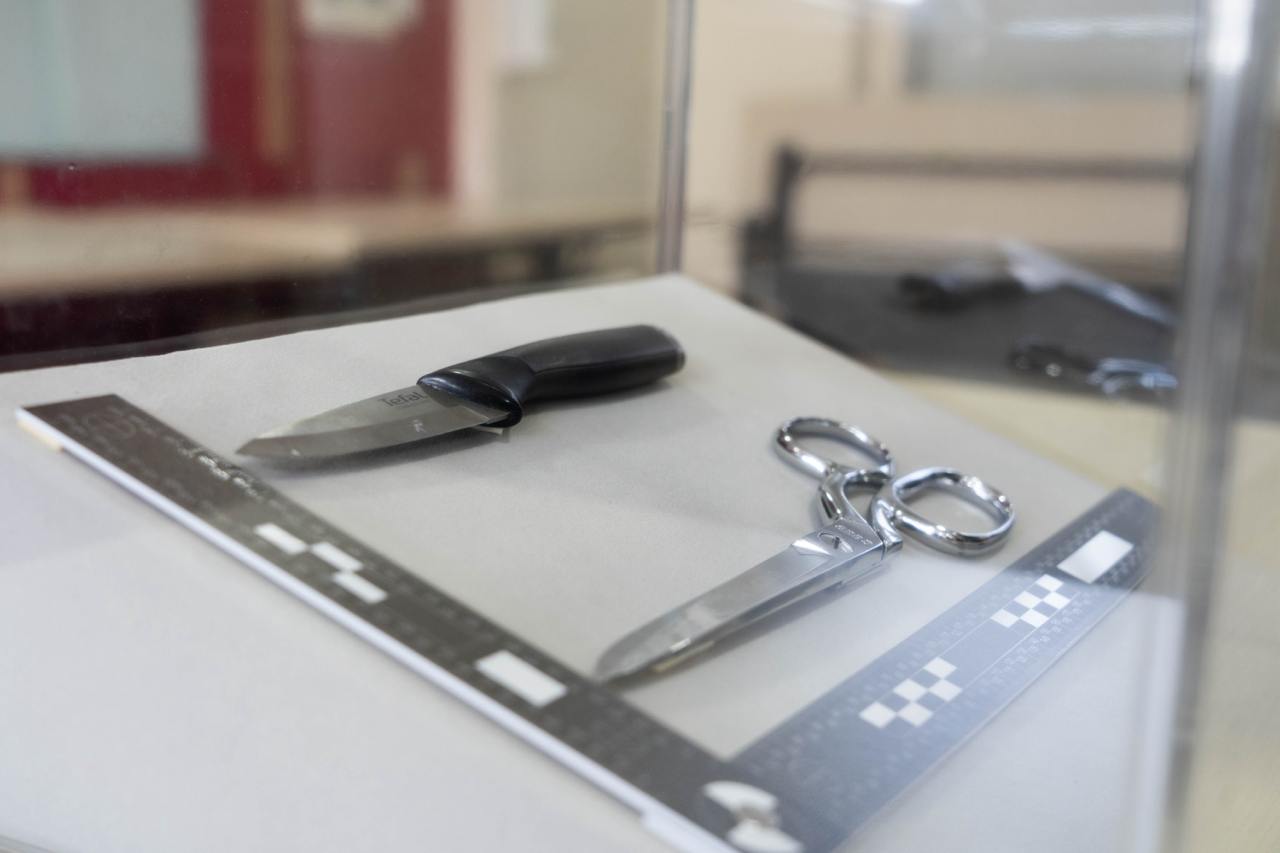 The weapons. Photo by Kristelynn Lim
The weapons. Photo by Kristelynn Lim
Aspiring to become a martyr, the teen was “determined to be killed by the police or passer-bys during the attack”.
Just before the attack, he planned to release a statement of armed jihad to other Muslims.
This, he hoped, would spur them to action against non-Muslims.
Planned to fight in Syria
Prior to this, the youth had begun planning to travel to Syria, join ISIS, and engage in armed violence.
While he did not have a specific timeline for this, he had reached out to an online foreign contact based in Syria for travel advice, and researched flight routes to Syria.
He was against National Service, as it would entail him serving a secular government, but saw it as a potential way to equip himself with military and combat skills.
He then hoped to use these skills to fight in Syria.
This plan, he believed, was an “important and meaningful endeavour” as it would allow him to fight and die alongside his fellow ISIS fighters.
But as travelling to Syria would have aroused suspicion from his family, he decided to carry out the Singapore attack instead as he believed it would be easier.
He also actively shared radical materials on his social media accounts, which he hoped would influence his followers into hating non-Muslims.
Fortunately, an investigation by ISD revealed that he was unsuccessful in radicalising his followers or contacts, and ultimately acted alone.
Youth radicalisation
As instances of self-radicalisation continue to take place around the world, early reporting is key, Shanmugam said.
"In this case, the young boy’s parents noticed that he was watching videos by foreign preachers. They advised him not to watch those videos," he said.
"When he did not listen, an option would have been to alert the authorities."
If a report is made early enough, detention may not be necessary. With young people, other interventions — like religious counselling — are real options, he added.
In this case, the teen was detained due to the extent of the radicalisation and the closeness to the carrying out of his plans.
But even this is not the end of the road.
"We've had young people who have continued their education, and passed their exams while under detention," Shanmugam said.
"So we try and rehabilitate, get them on to their life, and the aim must be — and [the] aim is — to have them released at some point. The sooner the better, go back into society, get a job, have a family, fulfil their potential, do whatever they want to do."
Staying vigilant
ISD noted that five self-radicalised youths, who wanted to carry out attacks against Singapore using “simple and easily accessible” weapons, have been detained since 2020.
Overseas, self-radicalisation has also taken place. In August 2024, following multiple stabbing incidents in Sydney, the Australia government raised its terror threat level from "possible" to "probable".
It cited "an increase in extremism, fuelled by conspiracy theories and anti-authority ideologies".
Shanmugam called for members of the public to be “vigilant” in looking out for signs of radicalisation in others.
He noted that there have been cases where teachers, parents, and family members have made reports, and cases of self-radicalisation were identified as a result.
Commenting on the connection between the conflict in Gaza and the teen's radicalisation, Shanmugam said extremist narratives are "everywhere, relating to developments overseas".
He said the teen's case shows how even groups like ISIS, which are not directly involved with the Israel-Hamas conflict, "can and will take advantage of the conflict to recruit and radicalise others".
He also acknowledged that youths in Singapore may feel strongly about the situation in Gaza, there are ways they can "make a difference".
These include participating in dialogues, events, and relief efforts to Gaza.
Ways to help
ISD listed some possible signs of radicalisation, as follows:
- Frequently surfing radical websites
- Posting/sharing extremist views on social media, such as expressing support/admiration for terrorists/terrorist groups and the use of violence
- Sharing extremist views with friends and relatives
- Making remarks that promote ill-will or hatred towards people of other races, religions or communities
- Expressing intent to participate in acts of violence overseas or in Singapore
- Inciting others to participate in acts of violence
Anyone who knows or suspects that a person has been radicalised should promptly contact the ISD hotline 1800-2626-473 (1800-2626-ISD).
Top photo by Kristelynn Lim
MORE STORIES












